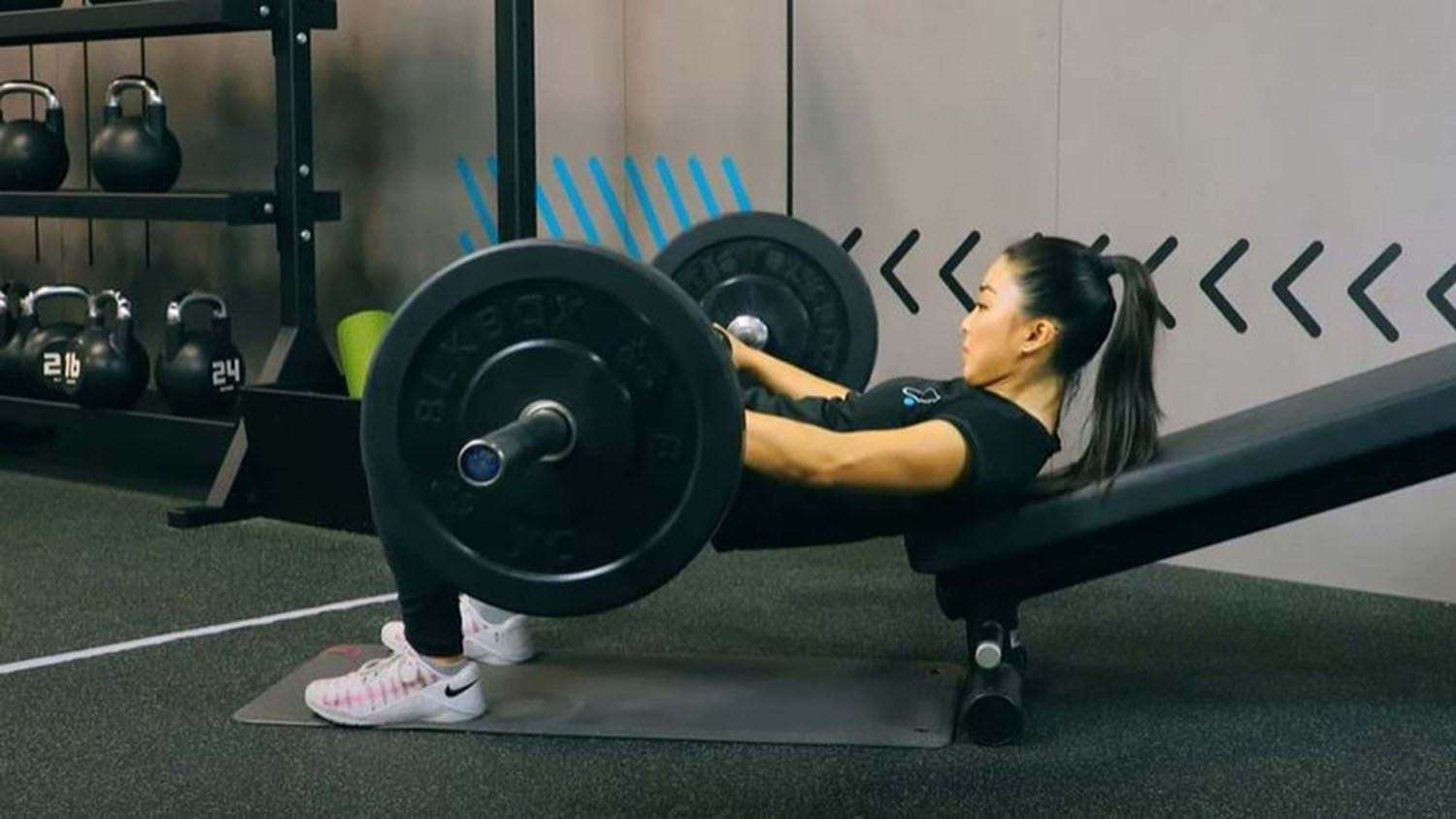Barbell Hip Thrusts
What Is A Barbell Hip Thrust?

Jump Straight To Hip Thrust Instructions
The barbell hip thrust is one of the most effective strength training exercises for the glutes, with support from the quads, hamstrings, adductors, and erector spinae. The glutes, torso and barbell are thrusted up off the floor while the upper body is stabilised against a bench or box.
Like deadlifts, hip thrusts are a hip hinge exercise, however they are performed with bent knees which reduces involvement from the hamstrings and places more tension on the glutes. Performing hip thrusts will help to build glute strength, size, and power.
Adding a barbell to the hip thrust allows it to be heavily loaded to increase strength and hypertrophy. The barbell is placed on top of the hip crease and thrusted towards the ceiling. Some people can find the pressure from the bar uncomfortable and opt to use a barbell pad as the weight gets heavier.
Check out our other hip thrust variations: bodyweight hip thrusts, dumbbell hip thrusts, single leg hip thrusts, resistance band hip thrusts
Commonly Asked Questions On Barbell Hip Thrusts
The barbell hip thrust is an excellent glute strengthening exercise that can help to increase strength, build bigger glutes, improve posture, stabilise the pelvis and knees, reduce back pain, and help to increase other lower body lifts like squats and deadlifts. It also strengthens the quads, adductors, hamstrings, erector spinae, and core.
Hip thrusts and deadlifts are both hip hinge exercises, however the deadlift is more technical and can be more difficult to master.
If it is comfortable, women can continue to barbell hip thrust throughout the first trimester. As the belly grows, it will take the space the barbell should go, and you may need to switch to bodyweight, resistance band, or dumbbell hip thrusts. Always listen to your body and speak to your GP when exercising during pregnancy.
The glutes are one of the largest muscles in the body and have the potential to be very strong, so most people can work up to heavy hip thrusts if that is their goal. However, there is no one correct weight to hip thrust. Start with bodyweight and once you can do multiple reps with good form, slowly add weight to continue to build strength.
Barbell Hip Thrust Tips
Proper set up and technique is important to make sure the movement comes from the glutes rather than the lower back.
Choose a box or bench height that allows the bottom of your shoulder blades to rest on the edge and place your feet hip width apart at a distance that allows the shins to be vertical at the top of the hip thrust. Try different foot positions without a barbell first.
Maintaining a neutral spine will help to protect the lumbar spine. Tuck your pelvis under and engage the core to straighten the spine and prevent it from overarching.
How To Do A Barbell Hip Thrust
Set up by loading your barbell and positioning it in front of a box or bench.
Sit in the centre of the barbell with your upper back resting on the edge of the box, legs extended out underneath the bar.
Pull the barbell towards the crease of your hips and place your feet flat on the floor, knees facing the ceiling, and then grip it just wider than hip width apart.
Engage your core by squeezing the abs and glutes to tuck under your pelvis, then push through the heels of your feet to thrust the bar up until your body is in a straight line from shoulders to knees.
Pause and squeeze the glutes before slowly lowering back to the ground, making sure the spine stays neutral throughout.
If you’re not sure if any of the above exercises are suitable for you, please consult your doctor before you start it. Need guidance on how to perform the exercise? Ask a personal trainer at your gym.